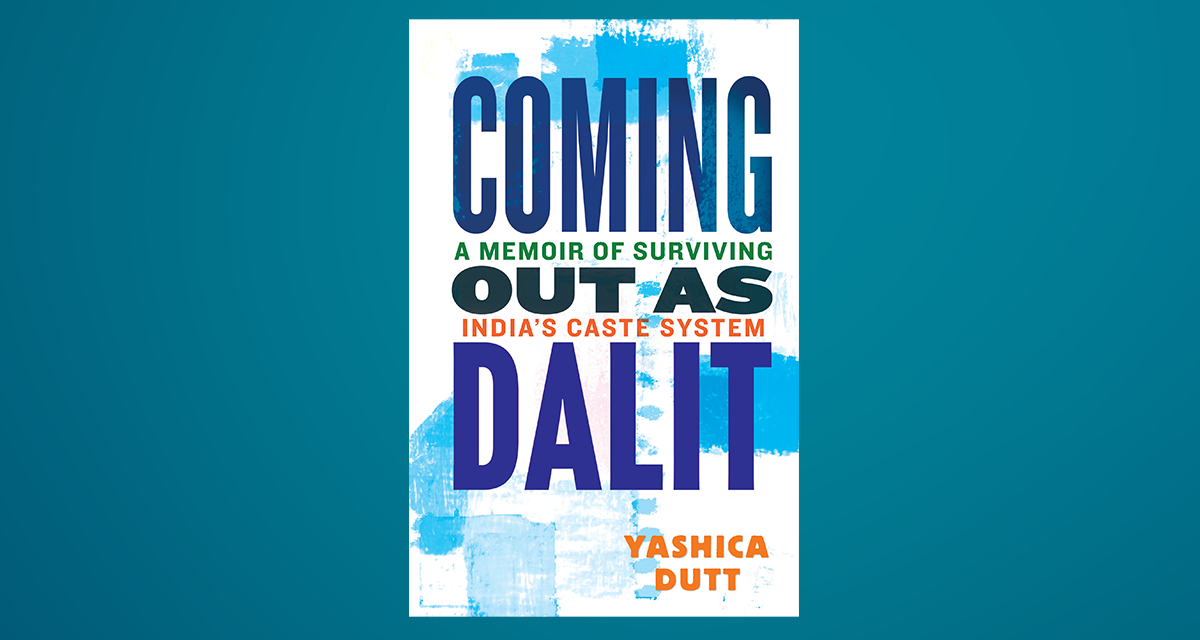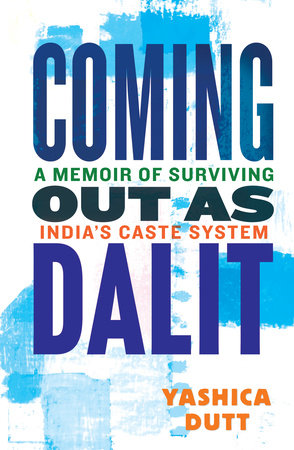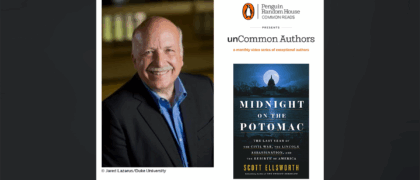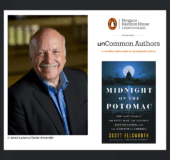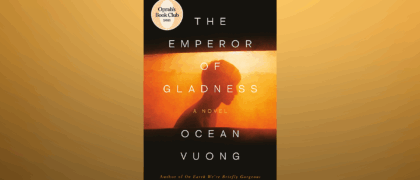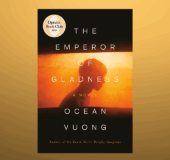Born into a “formerly untouchable manual-scavenging family in small-town India,” Yashica Dutt was taught from a young age to not appear “Dalit looking.” Although prejudice against Dalits, who compose 25% of the population, has been illegal since 1950, caste-ism in India is alive and well. Blending her personal history with extensive research and reporting, Dutt provides an incriminating analysis of caste’s influence in India over everything from entertainment to judicial systems and how this discrimination has carried over to US institutions.
Winner of the Sahitya Akademi Yuva Puruskar, 2020
PROLOGUE
Hiding one aspect of your identity is like leading a double life. You don’t feel like you belong anywhere. You create masks to wear in each of your lives, and switch artfully between the two. Eventually, the two blur together and you no longer remember who you were.
Pretending to be from a caste that’s not Dalit is something like that. And there are so many of us who are living this lie. We avoid talking about caste, hoping to somehow find a place in the world of upper-casteness that has been forbidden to us. We create upper-caste identities—stolen badges—that help us gain entry to a space that will reject us the moment it finds out who we really are. We nervously flash these IDs anytime we are grilled about our origins. Those who fail to exhibit satisfactory signs of upper-casteness and those who refuse to are punished for trespassing, for being where they don’t belong. Discrimination, humiliation, oppression are all penalties for not being upper caste, or simply for being Dalit. Our Dalitness is imprinted onto us through the burned bodies of our children, suicides of our PhD scholars and college students, rapes of young girls and women, asphyxiation of our manual scavengers, and “honor killings” of lovers. These penalties are so routine that they aren’t even considered worthy of shock and outrage. Newspapers either skip these stories or stick them in the back pages, between the sports and the city sections. Hipster jazz bars don’t flinch before announcing a music group called “Bhangijumping” and show little remorse after being informed about its grossly offensive undertones. It’s heartbreaking that an upscale jazzclub that can painstakingly educate itself about a musical tradition that originated from Black musicians in the United States in the late nineteenth century can’t be bothered to understand how “Bhangi” is a term of abuse much closer to home.
“We are post-caste,” we are told. “Casteism is over.” We are chided for addressing the inequality our Dalitness saddles us with and are sharply reminded of the “unfairness” of reservation.
Caste always colored my worldview, even when I had little understanding of it. When I was a child it puzzled me that my father and grandfather didn’t share their last name, unlike other father-son pairs in the neighborhood. My grandfather had dropped Nidaniya—a typically “Bhangi” last name—in his twenties, perhaps around the time he was forced down from the horse he was riding during his wedding procession at swordpoint by caste Hindus in Jaipur. Seventy years later, little seems to have changed as caste Hindus still humiliate Dalit grooms who display any upper-caste symbols of Hindu wedding revelry like decorated turbans or going on horseback to their bride’s house.
My grandfather, father, and I experienced our Dalitness in vastly different ways. Dad—the son of a revered civil servant—wasn’t forced down from his horse, nor was his wedding party disrupted. Two generations of prestigious government jobs and concealed last names hadsome what diluted the obvious markers of Dalitness. But not enough had changed that I could give a straight answer to the question: “What caste are you from?” My Dalitness still weighed heavy on me; I dragged its carcass behind me through my childhood and into adulthood. As a child, I worked harder to hide it, every tiny nudge throwing me off balance, every new interrogation about caste assaulting my spirit. My civics textbook educated me about “the evils of the caste system” but didn’t equip me to deal with its manifestations in my own classroom. It didn’t explain the stinging shame that pierced me every time one of my classmates or teachers called someone “Bhangi”—a slob. I didn’t even know I was “Bhangi,” but I knew it was something I, and not anyone else, should be embarrassed about.
One of my earliest memories of this pretense was watching Mum act the part. She would awkwardly try to explain how she, a Brahmin girl from Uttar Pradesh, married a Dalit boy from Rajasthan, without them ever having met. It was also one of my earliest memories of discovering that this artifice was not easy nor would it always be believed. It was rare for the recipient of that lie—a new neighbor or a classmate’s mother—to not see through it. And when they did, they often wanted nothing to do with us. My initial attempts at this pretense often contained the same awkward explanation about my parents’ marriage which, as a child, I was terrible at defending. But as I grew older, that narrative cemented into a perfectly crafted, well-rehearsed spiel that I could deliver on command. By that time, the weight of my Dalitness had settled so deep within me that I’d stopped feeling its weight or recognizing its presence.
So it wasn’t unusual that when I first saw the Facebook post about a Dalit boy who had committed suicide in Hyderabad University, I didn’t open the link. He was not the first Dalit boy who had died and he was not going to be the last. Dalit boys and girls, men and women, children, and old people, have regularly died because of caste violence. It is among the most devastating but far from the only outcome of caste discrimination that endures through Indian societies in the subcontinent and across the world. Even upper-caste men and women who claim that they are not casteist—and perhaps sincerely believe it—often propagate casteism in the name of tradition and culture in various ways, most significantly by insisting on marrying within their own caste. Matrimonial columns in all newspapers are filled with demands for a “Brahmin girl for a Brahmin boy,” an “Aggarwalonly” girl, or a “well-educated Rajput boy.” Even beyond the recent heightened intolerance for beef, vegetarianism has been the gold standard for caste purity. Purity is considered the sole preserve of Brahmins and other “higher” castes whereas those at the lower end—Bhangis, Chamars, Churas, Malodas, Malas, and Madigas, among others—are considered impure and downright polluting. Their touch, belongings, and even their shadows are believed to defile the well-preserved “purity” of others.
Rohith Vemula, raised by his mother, Radhika, was from the untouchable Mala caste. When the news of his death appeared a second time, a third, and eventually became a fixture on my Facebook timeline for twenty-four hours, I thought to myself: Who is this Dalit boy who made all the non-Dalits care? Rohith, a PhD scholar at Hyderabad University, had allegedly committed suicide as a result of relentless caste-based persecution at the university. When news of his suicide broke in the mainstream media in January 2016, my own Dalit identity was deeply buried beneath layers of convent education, urban upbringing, and a hardened resolve to avoid engaging with anything related to caste.
The day after the news broke, Tuesday, January 19, 2016, I finally read the letter that Rohith had left behind, as I sat at my favorite table at a too cold café in Manhattan’s Chelsea: “My birth is my fatal accident.” “Never was a man treated as a mind. As a glorious thing made up of stardust.” I read it once. Twice. And then once more. I had never read anything written by a Dalit before! I had certainly never read anything written by a Dalit in English—the language I had hoped would help me escape my own Dalit identity. The language I had stubbornly practiced since I was five. Flawless English was supposed to bring me to the same level as my upper-caste classmates in school and college. I leaned on it when the carcass of my Dalitness became too heavy. Later, writing in this language became my career. It is very likely that English was Rohith’s crutch too. He was probably still honing it so he could stand tall against those he had decided to take on—those who perhaps equated his Dalitness with an inherent subhumanness.
It’s very likely that, like me, he too had recognized that our education was our only strength. With far fewer resources than I had and possibly under more arduous conditions, Rohith sought education as his defense against his caste. Given his hardships, it would have been an easier and perhaps a more obvious choice for Rohith to have taken a job at a private multinational firm, like millions of other Indian graduates. Instead, he chose academia, exploring ideas that could help him interpret his reality as a Dalit. In his excellent report in the Hindustan Times, Dalit journalist Sudipto Mondal recounts that for Rohith, his PhD wasn’t just a career; he wanted to break new ground in research. Initially enrolled in the life sciences department, he later shifted to the social sciences, pursuing a PhD where he was researching the symbiosis between technology and social sciences. According to reports, he hadn’t received the allocated stipend for seven months when he killed himself.
Copyright © 2024 by Yashica Dutt. All rights reserved. No part of this excerpt may be reproduced or reprinted without permission in writing from the publisher.
Yashica Dutt is a journalist, an activist, an award-winning writer, and a leading feminist voice on caste. Born “in a formerly untouchable ‘lower’ caste family,” she passed as dominant caste to survive discrimination. Dutt moved to New Delhi at 17 and became one of the most widely-read culture journalists at a leading English language paper. Eventually coming out as Dalit, she introduced this expression which powerfully resonated in India. Her site, Documents of Dalit Discrimination, was among the first highly visible media spaces for caste oppressed people. Dutt’s work has been published in the New York Times, Foreign Policy and the Atlantic, and she has been featured on The BBC, The Guardian, and PBS NewsHour. Dutt lives in Brooklyn, NY.

